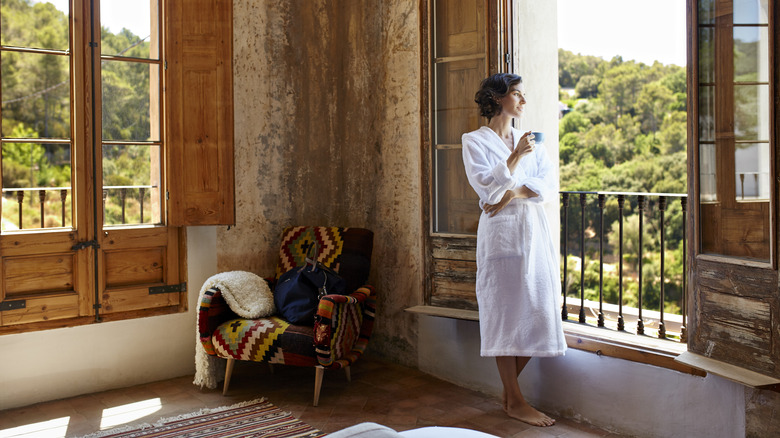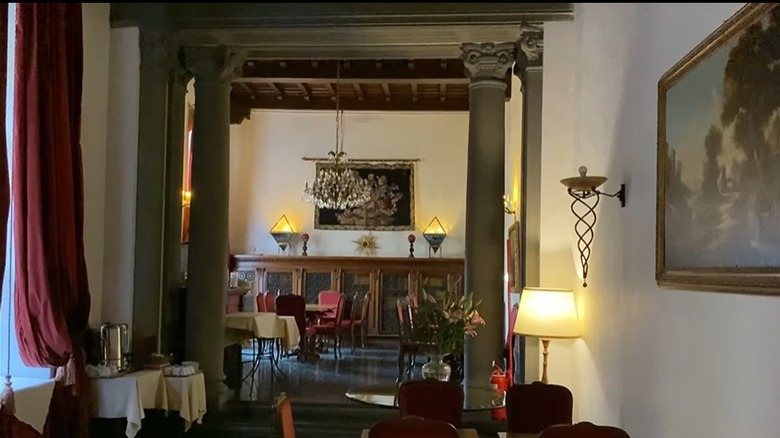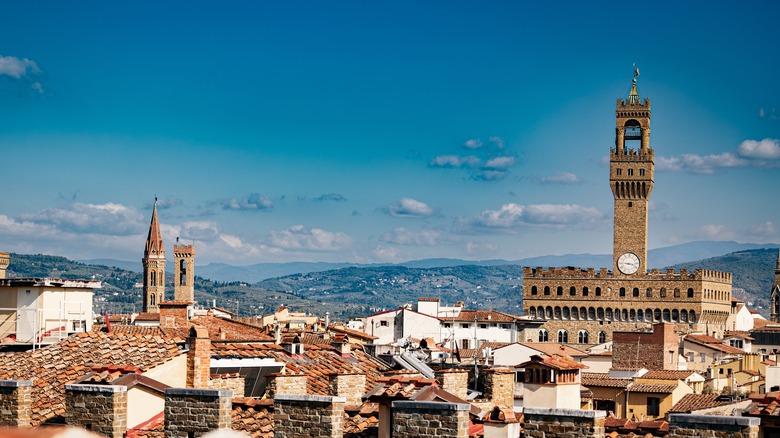Why Rick Steves Prefers 'Characteristic' European Hotels Despite The Drawbacks
Rick Steves took his first trip to Europe over 50 years ago, and since then, he's built a career as a travel expert by publishing insights and advice to inspire others to plan their own adventures. While he frequently updates his travel guides, one thing that has never changed is his philosophy on exploring the world. "The best traveler is also a good global citizen," Steves explains on his Facebook page. He says, "This means fostering a spirit of empathy and curiosity," and recommends exploring a city like a local instead of a tourist. This desire to understand and enjoy local culture is what inspires him to choose hotels on his route that are unique and full of character, even if they come with a few drawbacks.
A fancy and impersonal hotel "just builds a wall between me and what I traveled so far to see," Steves explains to Rocky Mountain PBS, but staying in a "characteristic" hotel can provide insight into the culture and history of a city. He provides an example of this type of experience on his Facebook page by sharing a peek into his surroundings during a stay at the Hotel Torre Guelfa in the heart of Florence, Italy. Built in the 12th century and originally known as the Acciaiuoli Palace, this hotel is filled with the kinds of historic architectural details that can be found in buildings across Europe. It features the type of character that Steves looks for when he chooses a hotel.
Enjoying the unique details of the hotel
During a short video tour, Rick Steves walks down the hallway of this restored palace and steps inside the beautiful breakfast room. He observes, "Every year the hotel seems to be a little bigger with a more winding floor plan because they keep buying or renting the next space." The unique design of the hotel gives it character and adds charm to the building, setting it apart from more conventional types of accommodations.
As he makes his way up three "very tall floors" on the way to his room at Hotel Torre Guelfa, he points out the addition of an elevator in the center of the stairwell. The unique placement of this modern convenience is the only location where it can be added to protected historic structures, such as the elevators in Paris that are positioned inside stairwells of some older buildings. It demonstrates how these buildings were constructed long before elevators were invented. Opening the door to his room reveals another set of stairs, reminiscent of the times when medieval buildings housed servants in sleeping quarters at the top of the building. "I want to give you kind of a reality check about these wonderful characteristic old hotels," Steves explains. "In this medieval building they have fixed up the tallest room. And that means climbing this," he states as he goes up the steps. He also adds that he's being treated to the nicest room, which happens to be located at the top of a flight of steep stairs.
The rough edges are part of the beauty
Once inside his hotel room, Rick Steves pauses to admire the exposed wood beams reaching across the vaulted ceiling. This architectural detail represents a time in history when an inexpensive way to construct a building was to position the beams first then simply place the roof on top. They're another example of a link to the past that Steves appreciates in this old building. As he steps outside onto a private terrace, he looks across the tiled rooftops of the city center to the spire of the Palazzo Vecchio, and he expresses his delight at the chance to experience the glory of Florence from a restored medieval palace.
As he concludes his video tour and reflects on his experience, Steves says, "We've got a chance right now to really be here in Florence in a hotel that's characteristic. It's funky. It's got some rough edges." He also mentions that it doesn't necessarily cost less than a modern, international hotel. Yet even with its drawbacks, Steves affirms that this type of unique hotel will be his first choice every time. In the comments section of his Facebook post, Sabrina agrees with Steves and notes that a "historic, unique, quirky hotel is golden and just enhances your perception and understanding of the culture you are visiting!" Choosing a characteristic hotel for your own next adventure is sure to enhance your trip, and you may find that your unique accommodation becomes a destination in itself.


